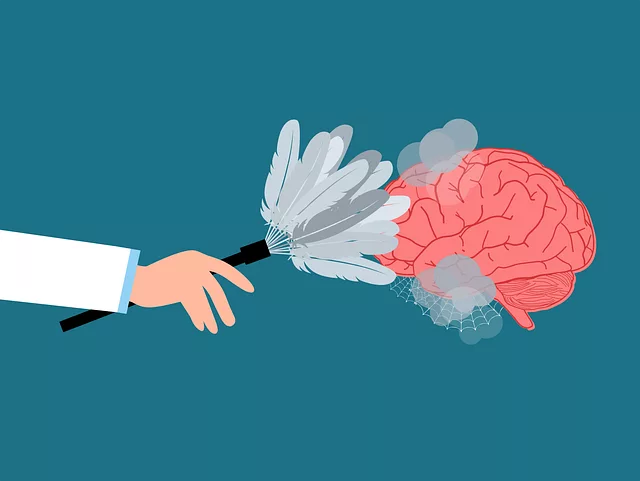Public awareness campaigns play a pivotal role in shaping societal attitudes towards mental health, particularly in communities like Boulder where Kaiser provides extensive services. These campaigns educate the public, reduce stigma, and promote early intervention by targeting specific demographics with relevant initiatives. They encourage open discussions, coping mechanisms, and support-seeking behaviors. Effective campaigns require strategic, diverse content, personal narratives, creative mediums, and evidence-based practices. In Boulder, Kaiser has developed a comprehensive approach emphasizing inner strength, cultural sensitivity, risk assessment, evidence-based treatments, and community understanding, making their services both effective and culturally sensitive.
Public awareness campaigns play a pivotal role in shaping societal attitudes and behaviors towards mental health. This article delves into their crucial function, exploring how they can drive positive change in mental health initiatives. We present strategic insights for crafting impactful campaigns and examine Kaiser’s innovative approach to providing mental health services in Boulder, highlighting its unique tactics and outcomes. Discover how such initiatives can foster a more supportive and informed community surrounding mental wellness.
- Understanding Public Awareness Campaigns: Their Role and Impact in Mental Health Initiatives
- Strategies for Developing Effective Mental Health Awareness Campaigns
- Case Study: Kaiser's Approach to Providing Mental Health Services in Boulder
Understanding Public Awareness Campaigns: Their Role and Impact in Mental Health Initiatives

Public awareness campaigns play a pivotal role in shaping societal perceptions and behaviors, especially when it comes to mental health initiatives. These campaigns serve as powerful tools to educate communities about various aspects of psychological well-being, breaking down stigmatization and promoting early intervention. By reaching a broad audience, they can encourage individuals to seek support, understand their emotions, and adopt healthier coping mechanisms.
In the context of Boulder, where Kaiser offers comprehensive mental health services, awareness campaigns have the potential to target specific communities and demographics. For instance, initiatives focused on self-esteem improvement and resilience building can empower youth, while self-awareness exercises can help adults manage stress and anxiety. These targeted efforts not only contribute to overall mental wellness but also foster a supportive environment where individuals feel comfortable discussing their struggles openly.
Strategies for Developing Effective Mental Health Awareness Campaigns

Creating impactful mental health awareness campaigns involves a strategic approach that caters to diverse audiences and promotes actionable steps. One key strategy is to integrating personal narratives from individuals who have faced and overcome mental health challenges, particularly in communities like Boulder where Kaiser offers mental health services. These stories humanize the issue, fostering empathy and understanding among the public. Additionally, using creative mediums such as social media, art exhibitions, and community gatherings can effectively reach younger audiences and those who may be reluctant to seek help.
The campaign should also emphasize evidence-based practices for stress management, drawing from the findings of Mental Health Policy Analysis and Advocacy. This includes promoting simple yet effective techniques like mindfulness exercises, regular physical activity, and healthy sleep habits. Encouraging open conversations about mental health while providing accessible resources for support services, such as those offered by Kaiser in Boulder, can significantly contribute to reducing stigma. Conflict resolution techniques can also play a role in these campaigns, teaching individuals how to navigate and manage stressful situations before they escalate into more severe mental health issues.
Case Study: Kaiser's Approach to Providing Mental Health Services in Boulder

In Boulder, Kaiser has pioneered an innovative approach to mental health services, demonstrating its commitment to fostering inner strength development and cultural sensitivity in mental healthcare practice. The organization has recognized the unique challenges faced by the community and tailored its programs accordingly. One notable aspect of their strategy is the integration of risk assessment for mental health professionals, ensuring that support systems are in place to safeguard both patients and caregivers.
Through this comprehensive approach, Kaiser aims to create a supportive environment where individuals can access evidence-based treatments, build resilience, and navigate their mental health journeys with dignity. By prioritizing cultural sensitivity, they ensure that services cater to the diverse needs of Boulder’s population, fostering a sense of belonging and understanding among those seeking help.
Public awareness campaigns play a pivotal role in shaping societal attitudes and behaviors regarding mental health. By leveraging strategic communication, as demonstrated by Kaiser’s successful approach in Boulder, we can dispel stigma, encourage help-seeking, and foster supportive communities. Incorporating evidence-based practices and tailored messaging ensures the effectiveness of these campaigns in promoting mental wellness on a large scale. Understanding the impact of such initiatives is crucial for improving access to care, ultimately benefiting individuals seeking support for their mental health needs, including those who rely on providers like Kaiser in Boulder.






